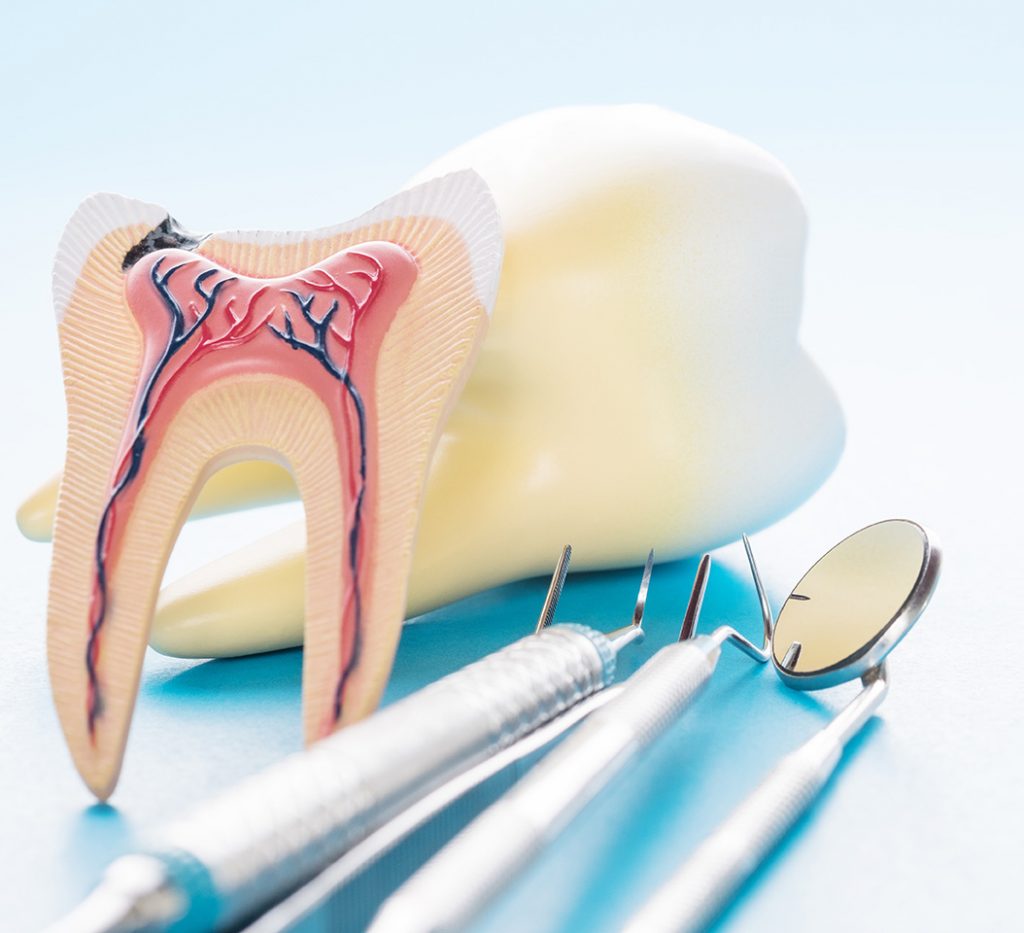Get painless root canal treatment with Tunbridge Dental Care

Also called endodontic treatment, a root canal is usually recommended when the tooth’s pulp becomes infected from tooth decay or damage from an injury in the mouth. When this infection stays untreated for a while, it can spread through the root canal system and cause severe pain and dental abscess.
Our dentists will carry out root canal treatment to relieve you of the pain, save your tooth, and prevent the infection from spreading. But before then, they will subject you to a local anaesthetic so that you will not feel any pain.
This treatment aims to remove every trace of the infection from the root canal, clean it up, sterilise it and fill it with something temporary. After this, your tooth will be allowed to sit for a while.
During the next visitation, the dentist will examine to be sure that the infection has cleared off. If it has, they will fill the teeth permanently with a bio-compatible rubber-like substance called gutta-percha. A root canal is an intensive and time-consuming procedure, so you will need to visit the clinic two or more times before it can be completed.
Frequently asked questions on root canal treatment
A root canal is an endodontic treatment that is used to treat infection or inflammation of the pulp of the teeth. This inflammation or infection may have resulted from repeated dental procedures, deep tooth decay, chipped or cracked tooth, faulty crowns, etc. Trauma on a tooth can also cause dental decay even when the crack or chip cannot be seen. If this pulp’s infection is not treated on time, it can develop into a dental abscess which is severely painful.
An endodontist is a dental specialist that has spent two or more years for specialised training in a dental school. This root canal specialist will use high technology like ultrasonic instrumentation, digital imaging, fibre optics, and operating microscopes to comfortably and predictably treat patients.
The modern root canal treatment is not painful; it does not feel anything more than a filling. With the latest advances and a local anaesthetic, you will have little or no pain throughout the procedure. Endodontists know how to bypass the pain and many patients confessed to feeling comfortable during the process.
No. Though x-rays are essential for the procedure, we replace them with digital radiography. Digital radiography is a non-film computerised system that produces only a small amount of radiation than simple manual x-ray machines.
Some patients with tooth decay stop feeling pains after taking antibiotics. This is not a sign that the infection has cleared off. Root canal treatment is specially designed to eliminate the infection so that it does not spread all around the tooth, cause an abscess, or recur.
However, before recommending a root canal therapy, your endodontist will use clinic and radiographic findings from you to determine if you genuinely need the procedure.
The primary aim of a dental professional is to save your natural teeth. Using an artificial tooth will hinder you from eating every kind of meal. However, with your natural tooth, you will still enjoy all your delicacies and even find it easier to maintain proper dental hygiene.
Also, it is cheaper to get an endodontic treatment than extracting your tooth and replacing it with an implant and dental bridge or crown. Also, the latter treatment will require more time to be completed.
The procedure usually takes one to two hours. Some dentists can finish this procedure within a visit, but you may be required to visit your endodontist the second time.
When your root canal treatment is completed, your dentist will analyse your treatment report and take necessary actions to protect the teeth. This may include filling or using a partial or complete crown.
You can visit us for a root canal treatment. Book an appointment by sending an email to [email protected] or call our helpline on 01892 538078.
